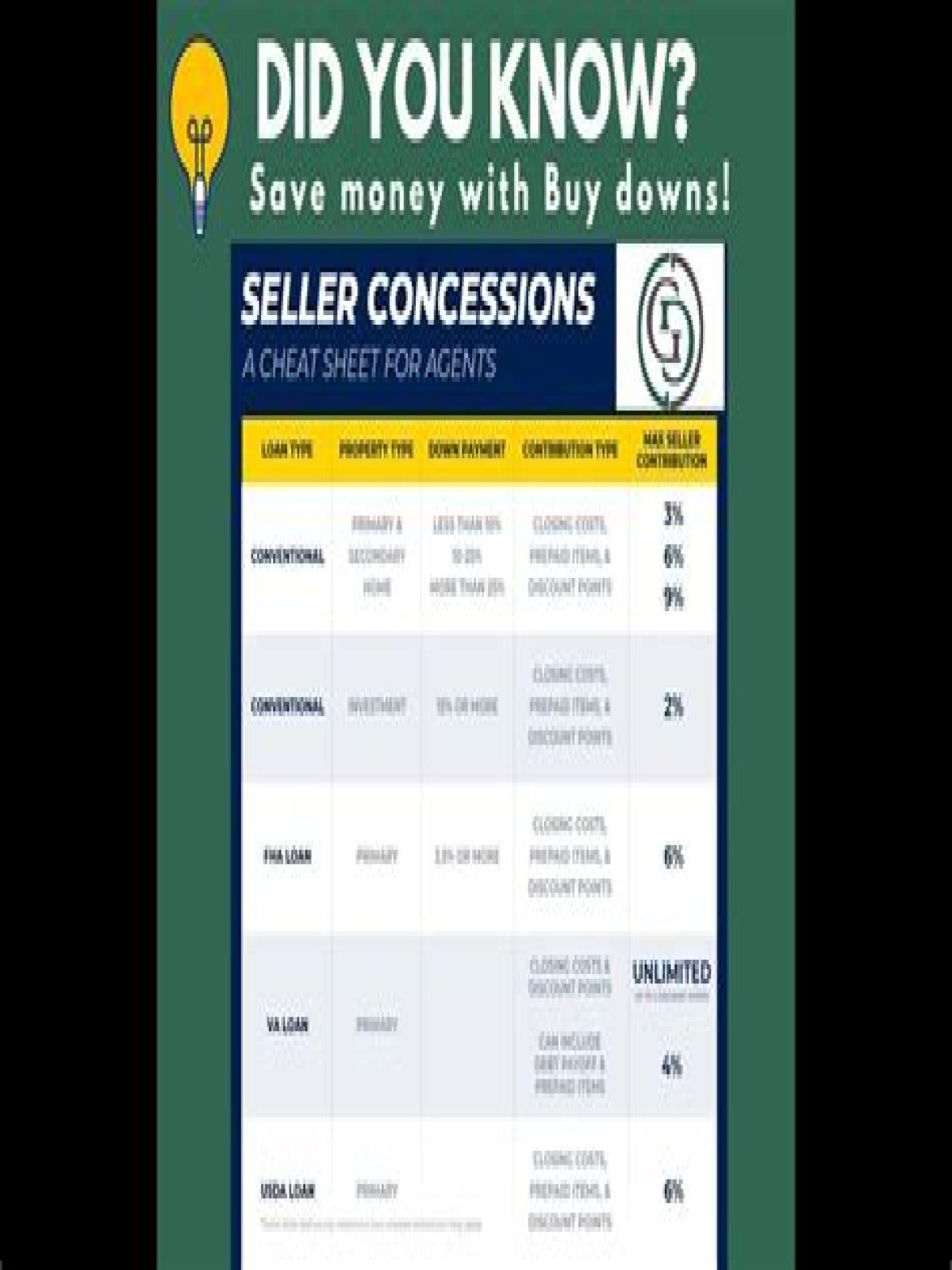Thereof, how much can seller contribute to closing costs conventional loan?
Conventional loans allow the seller to contribute 3% of the purchase price towards the buyers closing costs. 3% should cover most, if not all, of the costs listed above. If you are buying with an FHA or VA loan, you can ask for more. 4% will almost surely cover everything, however FHA will allow up to 6%.
Secondly, are seller concessions tax deductible? Seller paid buyer's closing costs are not deductible on a tax return. However, any seller paid closing costs on behalf of the buyer are expenses of the sale for the seller.
Also to know, what is seller concessions on a conventional loan?
A seller's concession is an amount of money paid toward closing on your behalf. In general, a conventional loan allows anywhere from two to nine percent of your new home's sales price in seller concessions, a VA up to four and FHA and USDA loans allow six percent in seller concessions.
Can seller's concession used down payment?
Seller concessions aren't a requirement, and sellers are under no obligation to grant them to buyers. The concessions are then typically added on to the mortgage and used to pay closing costs. Concessions don't give buyers cash back at closing, nor can they be used to cover the buyer's down payment.
How much is closing cost on a conventional loan?
How often do sellers pay closing costs?
Will seller pay all closing costs?
What is the most a seller can contribute to closing costs?
Why do sellers want conventional loans?
Is a seller's concession a good idea?
What is the interest rate on a conventional home loan?
| Products | Rate* | APR* |
|---|---|---|
| Conventional 15 Year Fixed | 3.125 % | 3.360 % |
| Conventional 20 Year Fixed | 3.375 % | 3.553 % |
| Conventional 30 Year Fixed | 3.625 % | 3.741 % |
